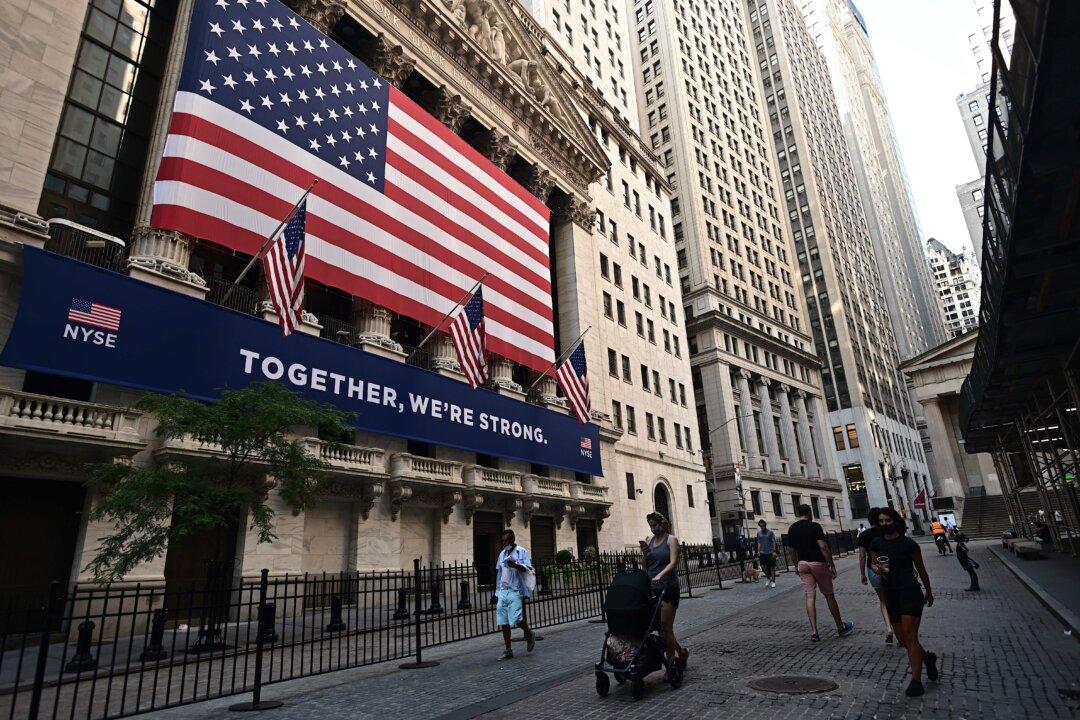NEW YORK—Wall Street is resuming its rise on July 27, while gold rushes to a record at the start of a week packed with potentially market-moving events.
The S&P 500 was 0.5 percent higher in afternoon trading following mixed, modest moves for stocks overseas. Nervousness was still hanging over markets, though, and gold shot above $1,940 per ounce to touch its highest-ever price. Treasury yields also remain close to their lowest levels in months.





